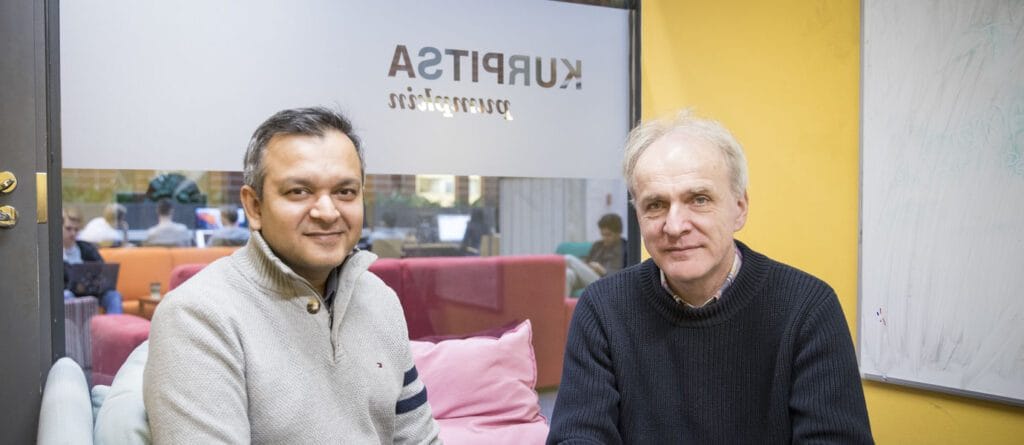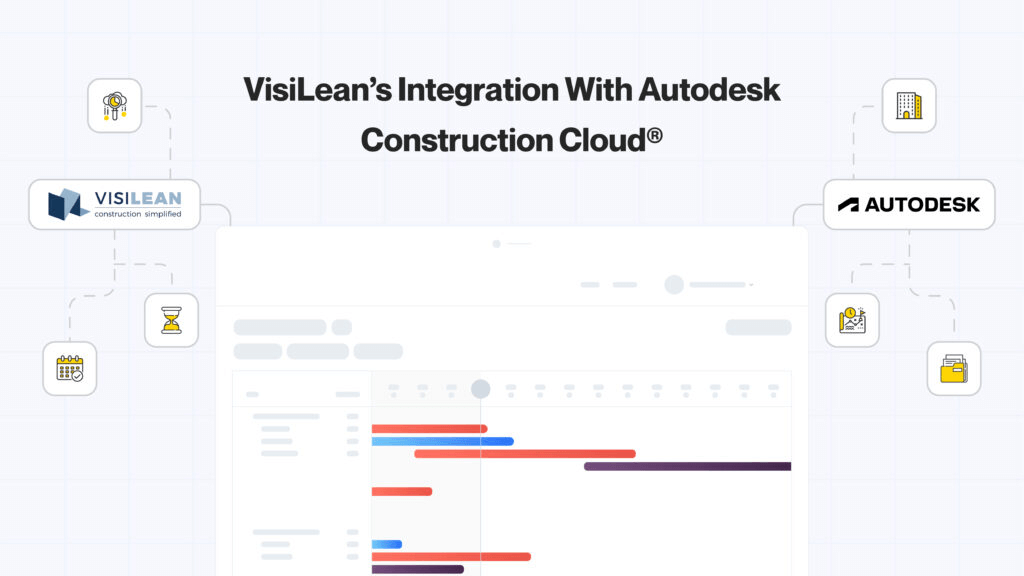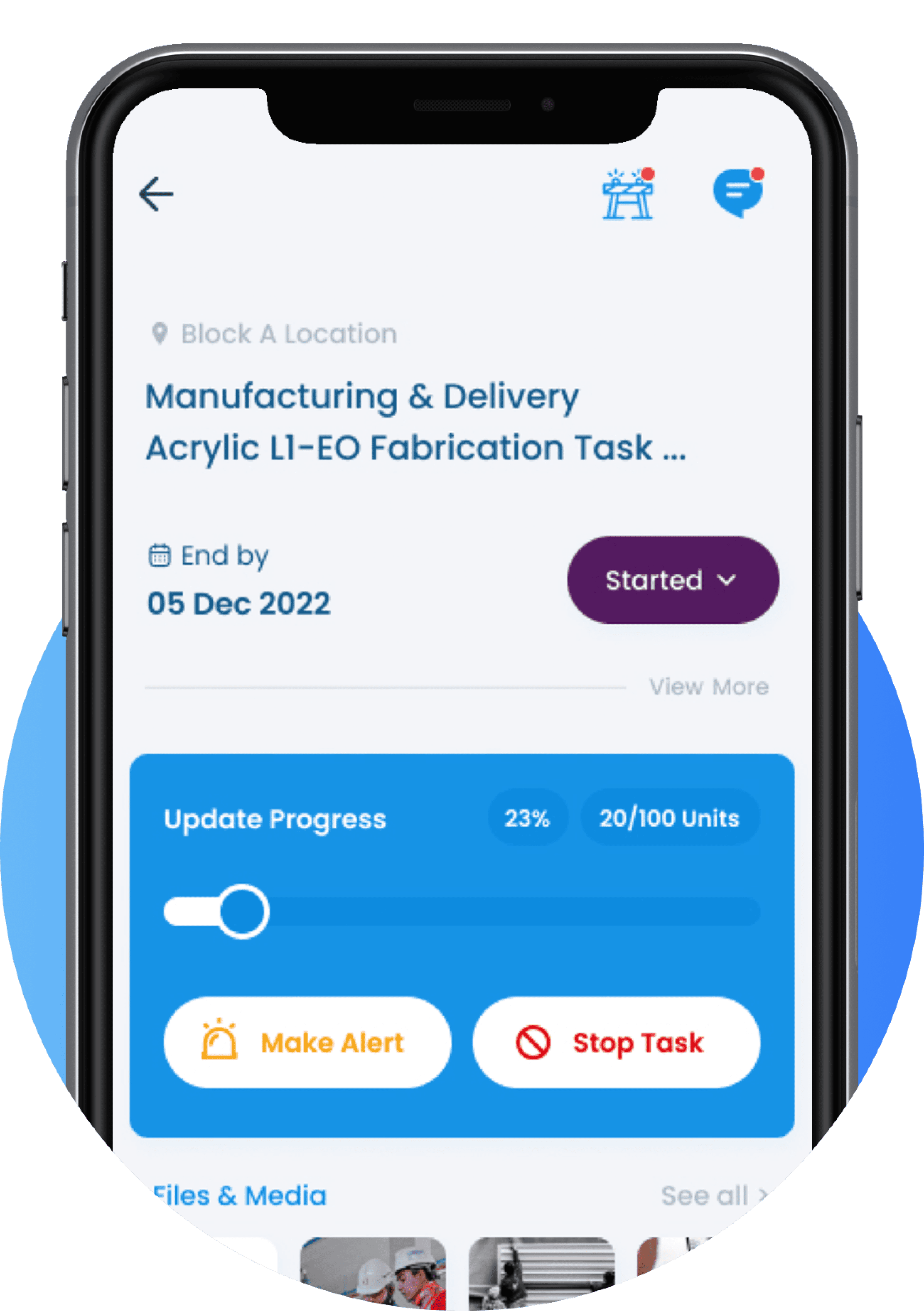Digitalisation is transforming the traditional field of construction. A new digital solution by VisiLean, a company that got its start at Aalto University, is finding interest among international construction companies.
While working as a civil engineer in India and Great Britain, Bhargav Dave noticed that construction projects were often hindered by sluggish communication between work sites and site supervisors. Poor flow of information causes problems for project planning and unnecessary delays at the construction site.
Dave’s company VisiLean offers a solution for construction projects. VisiLean is a cloud-based project management system that uses building information modelling (BIM) – in other words, a system that combines every bit of data about a construction project with a real-time, three-dimensional model.
Everyone involved in a construction project can use a mobile application to report work site progress, plan timetables or submit a report about supplies running out. A three-dimensional model integrated to the system can then be used to help with planning and track progress made on the project as a whole.
’Our intention is to make construction processes more efficient and to make everyday work at construction sites easier,’ Dave explains.
VisiLean supports lean management, a method that aims to improve the quality of processes by pruning unnecessary actions. When all employees can participate in progress reporting and planning, the management of construction projects becomes easier and time as well as money is saved.
From research project to international start-up company
VisiLean’s path to commercialisation began in 2013 at Aalto University with funding from Business Finland’s (then known as Tekes) New Business from Research Ideas funding programme.
The system is based on the research of Bhargav Dave, conducted at the University of Salford and at Aalto University. Founding members of the company also include Dave’s research colleague Stefan Boddy from Salford and business development veteran Martin Zilliacus.
Lean construction pioneer Professor Lauri Koskela has also contributed to the idea’s development and now serves as an advisor to the company. Also providing support is Professor Rafael Sacks, a major figure in the development of building information modelling.
There exists a real demand for the product in the construction industry, as in its early phases the system was practically unique on the market.
’At first, our toughest competitor was an Excel spreadsheet,’ said VisiLean Chief Operating Officer Martin Zilliacus.
Actual competitors have since appeared, but Dave and Zilliacus see a bright future for VisiLean.
’We’ve secured some large projects in which we were up against major international companies. These successes have given us confidence and trust in our product. Our customers are now doing our marketing for us, which is very promising,’ Dave says.
From the beginning, VisiLean has had an international outlook. The company currently has just over ten full-time employees and is planning to open an office in London in addition to its headquarters in Helsinki and an office in India. VisiLean’s customers are from the Nordic countries, India and Great Britain.
Digitalisation at a steady pace
VisiLean acquired its first round of private equity funding in 2017 and a new round of funding is about to begin.
The company is not currently looking to expand its product range, opting instead to focus on developing its core product and seeking opportunities in international markets. And there is no shortage of opportunities, as construction is a growing industry and construction companies are showing more interest in adopting new digital tools.
’We are growing at a steady pace. The field of construction is slow to change practices and decision-making takes time,’ says Zilliacus.
According to the founders, the New Business from Research Ideas funding and Aalto University’s innovation services have been vitally important in the company’s early stages.
’Many good ideas die if they cannot receive the initial support they need,’ Dave says.







